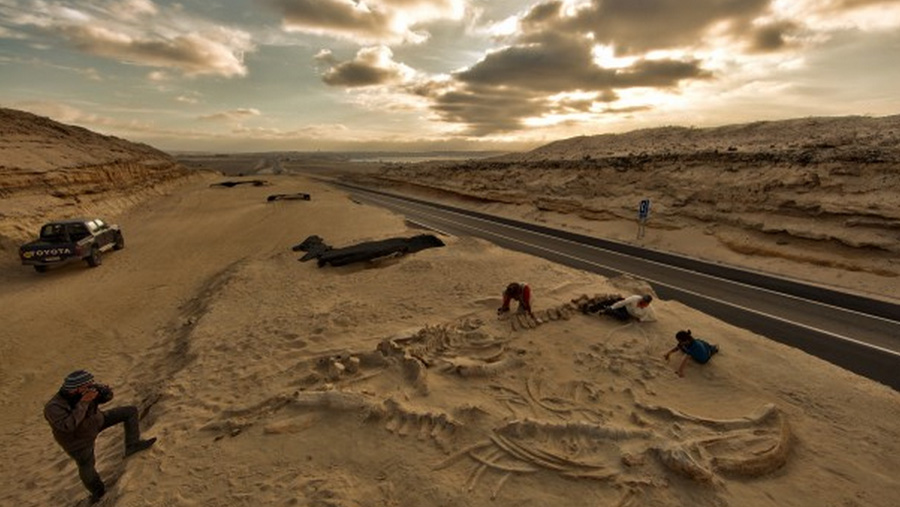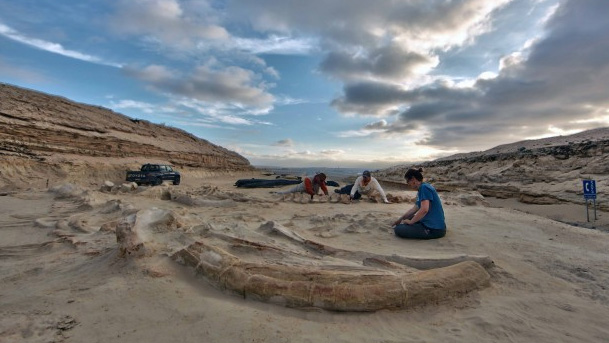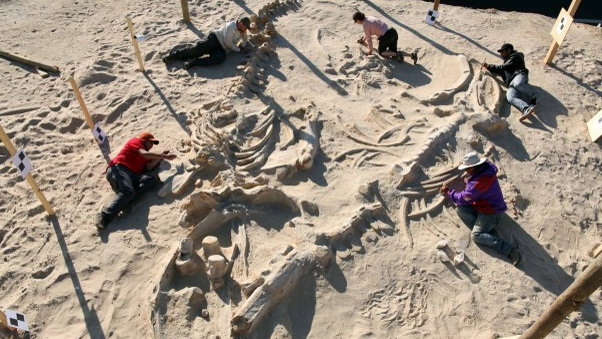Mystery of pre-historic whale graveyard solved by toxic algae
Scores of whales ended up in a desert more than half a mile from the sea five millions years ago

A free daily email with the biggest news stories of the day – and the best features from TheWeek.com
You are now subscribed
Your newsletter sign-up was successful
THE mystery of a pre-historic whale graveyard discovered in a desert beside the Pan-American Highway in Chile may have finally been solved by scientists.
The bones were unearthed in June 2010 during a road-widening project and represent one of the most significant fossil discoveries of recent years.
But scientists were baffled as to why scores of fossilised whales, who died five million years ago, came to be found in a desert more than half a mile from the modern seashore. But today experts from the Smithsonian Institute have published their findings, shedding some light on the mystery.
The Week
Escape your echo chamber. Get the facts behind the news, plus analysis from multiple perspectives.

Sign up for The Week's Free Newsletters
From our morning news briefing to a weekly Good News Newsletter, get the best of The Week delivered directly to your inbox.
From our morning news briefing to a weekly Good News Newsletter, get the best of The Week delivered directly to your inbox.

Scientists believe the mass grave was the result of not one but four separate mass strandings spread over a period of several thousand years.
The whales are believed to have ingested toxic algae, causing organ failure and rapid death. The dead mammals were then washed into an ancient estuary and on to flat sands where they became buried over time.
In a Royal Society journal, the scientists reveal that more than 40 whales were discovered, as well as other important marine animals. "We found extinct creatures such as walrus whales – dolphins that evolved a walrus-like face. And then there were these bizarre aquatic sloths," says Nicholas Pyenson, a palaeontologist at the Smithsonian's National Museum of Natural History.
This indicates that a large, indiscriminate event took the lives of many creatures simultaneously, rather than just a virus or another illness that killed only whales, say scientists. Fossil algae mats found on the skeletons are another important indicator that algae blooms killed the animals.
A free daily email with the biggest news stories of the day – and the best features from TheWeek.com

Many of the fossils at Cerro Ballena, now regarded as one of the densest fossil sites in the world, were described as "perfect" but for a few nicks inflicted by foraging crabs. Scientists say this means they were likely to have then been washed ashore quickly before other ocean predators could scavenge their remains. Many were also lying "belly up", suggesting that the whales died out at sea and did not strand themselves upright on the shore.
Scientists believe there could be hundreds of specimens in the area still waiting to be unearthed and investigated.
Pictures courtesy of Adam Metallo/Smithsonian Institution